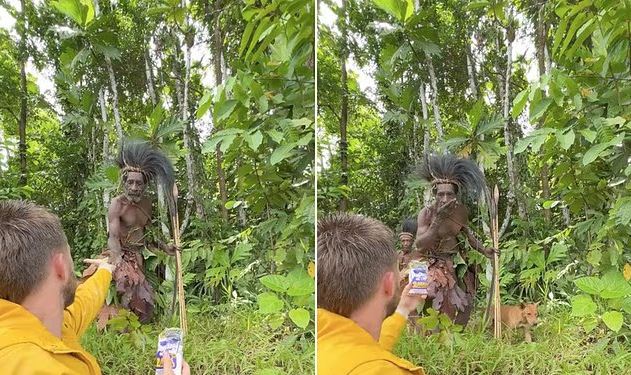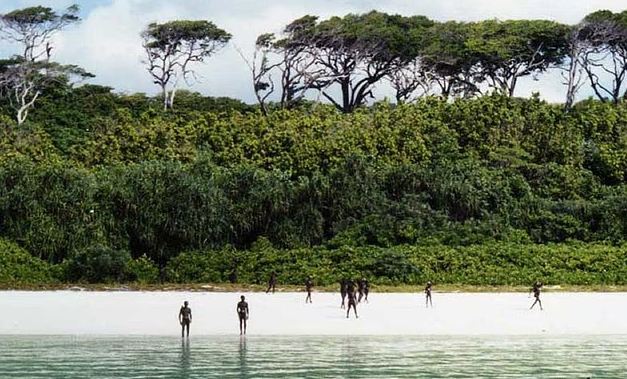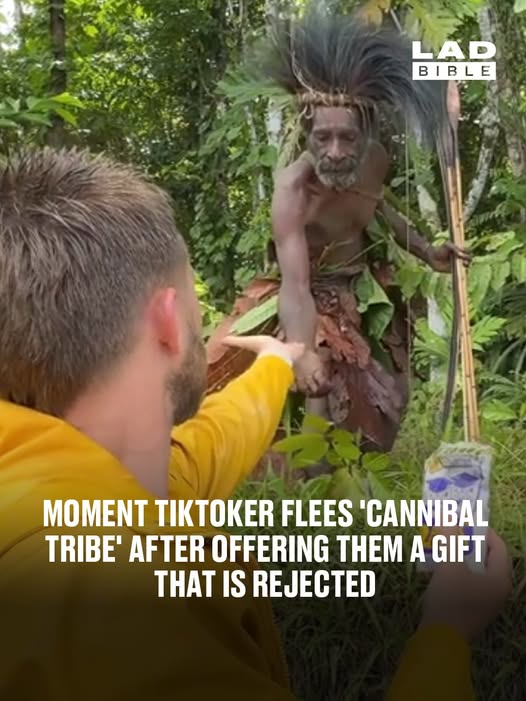Irish TikTok star Dara Tah, known for risking it all in extreme travel content, recently captured a fraught moment in Papua, Indonesia. In a tense video he captioned “meeting a cannibal tribe,” Dara and a group of tourists approach a remote tribe by canoe only to be met with arrows and hostility. The dramatic encounter ends with the influencer and his team retreating in fear.
Salt Peace Gesture Falls Flat
During the encounter, Dara attempts a classic peace move—offering salt. He waves a packet toward one tribe member, who tastes it, spits it out, and glares with obvious displeasure. Realizing the situation’s danger, Darah caves to his guide’s insistence, “We have to move—this is dangerous,” and they swiftly withdraw.

Online Backlash: “Leave Them Alone”
The video immediately sparked outrage on social media, with viewers accusing Dara of reckless tourism. Commenters slammed him for invading tribal territory, perpetuating false stereotypes, and labeling people as cannibals without evidence. Comments ranged from “Leave them alone” to, “They are not cannibals—just peaceful people.”
Additionally, critics pointed out that many Papua tribes have no documented history of cannibalism, and the sensationalist portrayal is misleading and harmful.
Echoes of Dark Tourism and Ethical Missteps
Dara’s video sits squarely within the growing trend of sensational travel content—often termed “dark tourism”—which thrives on danger, shock value, and exoticism. Experts warn that such stunts not only endanger tourists but also disturb isolated communities, exposing them to possible diseases and unwanted attention. Similar ethical concerns were raised after the 2018 death of missionary John Allen Chau, who visited India’s Sentinelese Islands. Dara, meanwhile, showed no remorse—posting, “Will try again tomorrow. Wish us luck.”
A Pattern of Risk-Taking
This is far from Dara Tah’s first controversial journey. His travel history includes stunts such as collaborating with sulfur miners at an Indonesian volcano, spending time inside a nuclear missile silo, and exploring deadly “Snake Island” in Borneo. Each trip aims for thrills and clicks—but increasingly draws criticism for lack of responsibility.
A Cautionary Tale for Travel Creators
Dara Tah’s Papua escapade—marked by fearful retreat and misunderstood cultural contact—underscores the thin line between adventurous content and outright exploitation. Filmmaking in isolated regions demands respect, cultural sensitivity, and awareness of real-world consequences. Audiences and creators alike must ask: is every content opportunity worth the human and real ethical cost?

Conclusion
Dara Tah’s encounter with the so-called “cannibal tribe” in Papua serves as a stark reminder of the real responsibilities travel creators bear when exploring remote communities. While thrilling content can captivate audiences, it must never come at the expense of cultural respect, safety, or ethical integrity. The incident highlights the fine line between adventure and exploitation, emphasizing the need for sensitivity, preparation, and humility when filming in isolated regions. Ultimately, true exploration should celebrate and protect local communities—not sensationalize or endanger them. Moreover, creators should consider the long-term impact of their content on both the communities they visit and the audiences they influence responsibly and thoughtfully.

















